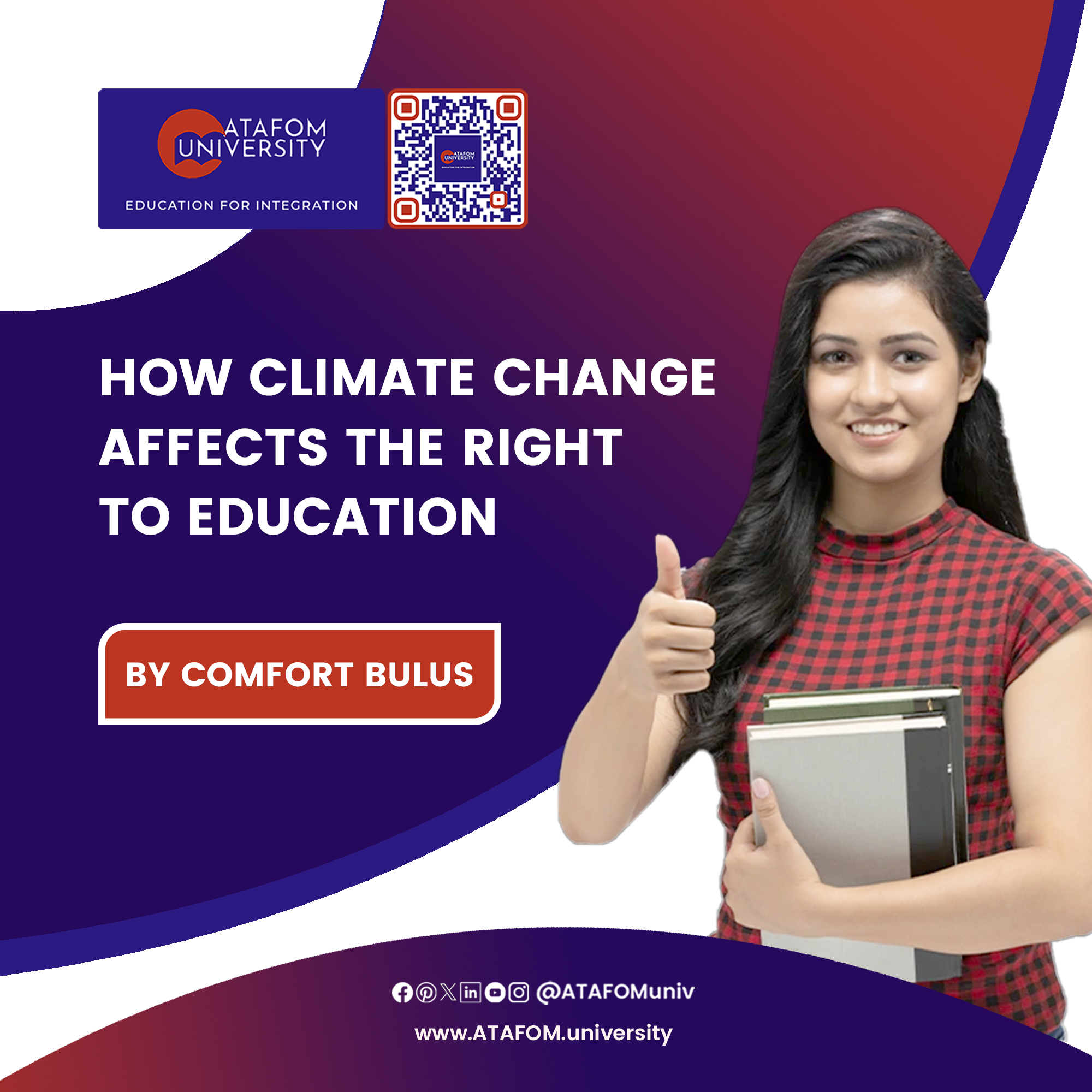Even though everyone should have access to education because it is a fundamental human right, many people around the world still cannot attend school. The right to education now faces yet another challenge from climate change.
The gap between the rich and the impoverished is growing as a result of climate change, which is causing people to relocate and destroy infrastructure, including educational facilities. States need to assess how climate change affects the right to an education and come up with solutions. The right to education is recognised and defined in international human rights documents like the Universal Declaration of Human Rights (UDHR), the International Covenant on Economic, Social, and Cultural Rights (ICESCR), and the Convention on the Rights of the Child (CRC), which obliges states to allocate funds to guarantee that everyone has access to fundamental education.
The right to education is being increasingly impacted by climate change. First, many people who are displaced as a result of climate change-related events or processes find it difficult to access schooling. Even in places where education is available, moving to a new area might frustrate children due to linguistic difficulties, which, if they are not overcome, can cause them to stop attending school. Due to ongoing instability and a lack of additional time and care devoted to these kids, trauma from displacement itself can have a severe impact on a child’s academic achievement. The detrimental effects of climate change on people in underdeveloped nations can be seen in how it affects critical cognitive abilities and the slowing down of academic advancement due to starvation.
Second, states with already scarce resources are put under financial and economic strain by climate change. As a result, states are unable to achieve their commitments to ensure that all citizens have access to high-quality education. This implies that resources are being diverted away from the education sector. This is seen, for instance, in the enrollment gender disparity. Girls are disproportionately affected by climate change, which frequently causes them to lag in enrollment rates. According to studies, 12.5 million girls at least may not attend school by 2025 as a result of climate change. When searching for clean water, girls from underdeveloped nations may be compelled to travel great distances, and in some situations, they may be married off at a young age, preventing them from completing their education.
Extreme weather events like typhoons and hurricanes, which can destroy school facilities and furnishings and prevent pupils from attending class temporarily or permanently, have a direct impact on the right to education as a result of climate change. Early infancy is impacted, which puts children at a higher educational disadvantage than those who are not exposed to such circumstances. Effective policies and action are further hampered by the absence of a rights-based strategy for combating climate change. The serious threat that climate change poses to the right to education must be understood and addressed by policymakers.
States must confront the issue of climate change, commit to reducing greenhouse gas emissions, and comprehend the connection between education and human rights to guarantee that all children have access to education in the face of climate change. Access to clean, safe water should be guaranteed by governments, especially for young women from developing countries. More funds and resources are required to comprehend the effects of climate change on schooling. Governments and nations must be crisis-ready, protect the weak through monetary and legal safeguards, and work with local and international communities. Legal frameworks for bilateral and regional agreements may assist in lowering the dangers to immigrants’ educational opportunities.
All stakeholders must plan and carry out measures to ensure nobody is denied an education to prevent climate change from affecting access to education. While important in today’s world and deserving of all children despite different circumstances, the right to an education will take time and stakeholders’ collaboration. ATAFOM University International was founded in an attempt to resolve this anomaly. All students are given a thorough educational experience, regardless of whether they are members of racial or ethnic minorities or come from low-income homes. Each student at our university has access to the tools and resources that will help them graduate and give them a genuine chance to thrive when they enter the job. For a comprehensive and rich learning experience, ATAFOM University International takes into account other relevant issues outside of the classroom.


